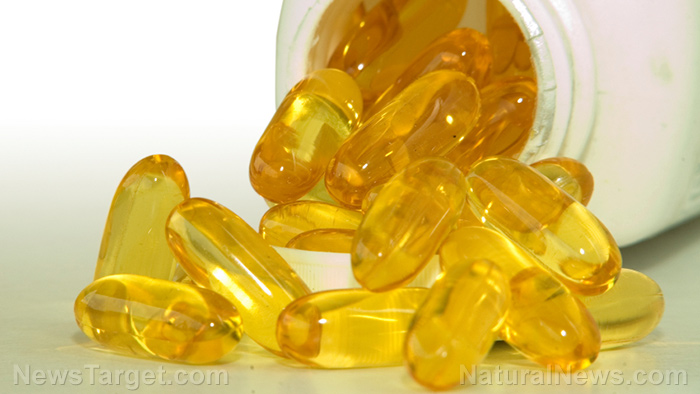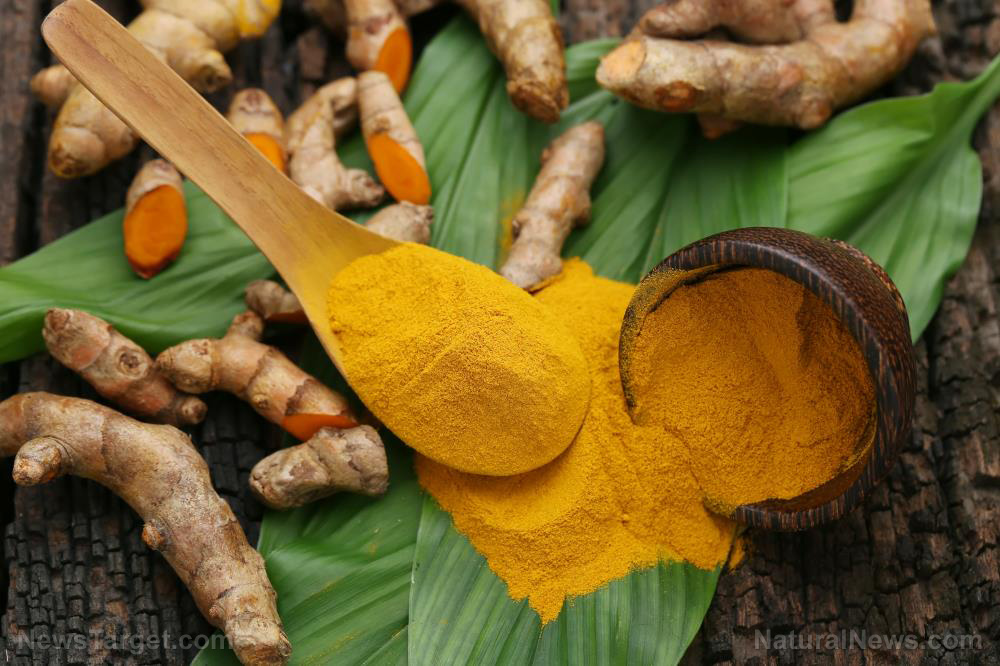Omega-3s are a potent way to treat depression without resorting to dangerous prescription medications
04/15/2019 / By Edsel Cook

There are many natural ways to remedy poor mood and depression that do not involve the use of pharmaceutical drugs. One of these alternative approaches is to eat larger amounts of healthy foods that are rich in omega-3 fatty acids.
Scientific research shows that the intake of omega-3 fatty acids in a diet influences the risk of depression. People who eat more omega-3-rich foods appear to have lower risks of falling into a depressed mood.
The fatty acids achieve their natural antidepressant effects through several means. Omega-3s can raise the activity of CNS seratonin, reduce the risk and severity of inflammation, and stop phosphatidyl-inositol from sending signals that bring about depressive moods. They can even increase the variations between heartbeats. (Related: Omega-3 supplementation lessens symptoms of depression in people with chronic heart failure.)
The natural, healthy equivalent of today’s antidepressant drugs
Furthermore, omega-3 fatty acids seem to stop immune cells from releasing pro-inflammatory cytokines in the brain. This is similar to the means by which selective serotonin reuptake inhibitors (SSRI) and tricyclic antidepressant drugs improve the mood of patients suffering from depression.
The acute phase of severe depressed mood has been observed to cause a spike in the release of cytokines. When those inflammation-causing molecules reach the brain, they disrupt the carefully regulated metabolism of serotonin in the organ. The disruption reflects changes in the mood of depressed individuals.
The anti-inflammatory effects of omega-3 fatty acids can potentially counter this. The fatty acids have demonstrated their ability to affect the release of similar cytokines in the heart, which in turn lowers the risk of coronary heart disease.
It so happens that heart disease is linked to major depressive disorder. If inflammation is to blame for both health conditions, it stands to reason that anti-inflammatory compounds like omega-3s can alleviate symptoms of both problems.
Picking the right type and dose of omega-3 fatty acids for improving depression
Adding omega-3 fatty acids to ongoing treatments can increase the effectiveness of antidepressants. This boost is especially useful for patients who have become inured to the effects of the pharmaceutical drugs.
The most commonly used omega-3 fatty acids are eicosapentaenoic acid (EPA) and docosahexaenoic acid (DHA). A comparison of their natural antidepressant activity shows that EPA is more effective as a standalone nutrient and as an adjunct to other antidepressants than DHA.
Despite the large number of studies, researchers have not yet agreed upon the minimum dose of EPA needed to achieve antidepressant effects. A commonly recommended dose is two grams of omega-3 fatty acids each day. Divide this dose between meals to absorb the most EPA from the food.
Furthermore, the relationships between omega-3s and other fatty acids present in the blood and brain can alter the effectiveness of the dose. For example, omega-6 fatty acids cause inflammation, which is the opposite effect of omega-3s. Experts say that the goal should be to achieve a good ratio of omega-3s to omega-6s in the blood.
Omega-3 supplements can alleviate major depressive disorder and bipolar disorder
An analysis of the results of various experiments indicates that patients suffering from major depressive disorder can benefit the most from taking omega-3 supplements. Other potential users are bipolar depressed patients and people whose bodies reject pharmaceutical-only treatments. Furthermore, a separate evaluation says that both EPA standalone and EPA-DHA combination provide the greatest benefits in patients who were already taking antidepressants.
Taking omega-3 fatty acids also does not cause serious side effects for most people. However, people with diabetes should first get advice from their healthcare provider before taking omega-3 supplements. The same caution applies to patients who are already on anticoagulant treatment.
Read BeatDepression.news for more health solutions for beating depression.
Sources include:
Tagged Under: alternative medicine, anti-inflammatory, depression, diet, food cures, food is medicine, mental health, moods, natural antidepressant, natural cures, natural medicine, nutrients, omega-3 fatty acids, omega-3s, supplements



















